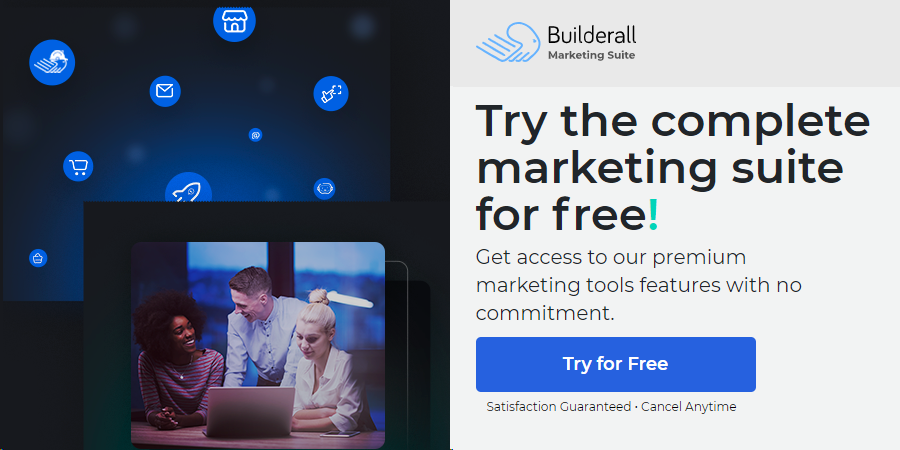
This pandemic is something never seen before in recent history and the consequences are hard to measure.
For many commercial website operators, the worries are existential. The continuous restrictions on the majority of individuals’ lives greatly influence how people shop, which in turn affects the future of business sectors as a whole.
They are concurrently creating a mounting buildup of consumer requirement that is not able to be immediately gratified.
However, that will change in the months to come. As population vaccination programs increase, the likelihood of a resumption of the normal way of life is beginning to look more realistic.
This opens up different avenues for website operators.
The choices they are about to make are sure to have a permanent effect on how their site appears in natural search results.
Website operators find themselves in a particular predicament, regardless if the current circumstances have had an unfavorable or beneficial impact on their online sales.
Transform your particular situation into a lasting edge for SEO.
If your website is thriving, keep reading. In the event of a large drop in organic traffic, proceed to the segment on ‘Falling Sales’.
SEO Tactics for Sustaining & Building on Growing Sales
Online shopping, streaming sites for business and entertainment, medical and healthcare sites, freight, travel logistics, and storage businesses have all seen an unusual sustained upsurge in activity.
Often, a change in the requirements of users can lead to an increase in demand which could not be predicted even in the most positive environment.
Web owners who find themselves in the fortunate situation of increased activity because of the pandemic must plan ahead for when their customers may revert to how they were before COVID-19.
The possible drop in user demand should not signify business failure, given that the abundant data available provides an opportunity to secure a bigger segment of the market for the future.
Certain sectors and particular online services have significantly profited from the impact that the COVID-19 pandemic has had.
Record Server Logs
It is essential to continue to keep a record of data from the server logs to achieve this objective.
Whenever a user or a bot from a search engine requests a page, a raw server log will be created.
Long-term, unaltered web server logs can provide beneficial knowledge about how efficient a website is doing.
Examining a server’s log files can reveal any spam material that has been put in place by a destructive outsider. By tracking server responses, it’s possible to identify incorrect ones, like a “soft 404,” which, if there are many of them, can potentially lead to decreased rankings in organic searches.
This technology has the ability to spot spider snares and allow for a better understanding of allocated crawl budget.
Branding
Search engines do not take a brand into account when ranking a website, however, it does have an effect on the click-through rate which is key to succeeding at Search Engine Optimization.
Excellent brand recognition combined with steadily tested adjustments of the description can cause a greater than average click-through rate.
This explains why extensive publicity brings about the potential for companies to create an impression on people who use the product and greatly improve the opportunity for them to demonstrate a liking for the brand when it comes to competing with other brands for notice on search engine result pages.
Google has an inclination for websites with comparable attributes, to be placed higher on search engine rankings, based on the user’s preferences.
Performance
CTR is affected by brand recognition, and the performance of a page can have a great influence on the bounce rate as a measure of user satisfaction.
In summary, if users come back to search results to find another website other than the one they left, the rankings of the website they left are reduced.
Therefore, it is necessary to ensure that content is delivered to users quickly in order to meet their expectations.
SEO Tactics for Recovery from Falling Sales
Website operators that are having significant issues with search engine visibility and thus experiencing a decrease in sales must take immediate action concerning SEO.
Firms working in the fields of tourism, travel, and subscription-based services are included.
The current restrictions put in place for buyers stop them from having their needs met. Therefore, despite being top-tier companies, even the most prominent corporations struggle to get much web traffic through search engines.
In the short run, this is obviously bad. However, from a long-term perspective, it’s an opportunity.
This is an opportunity to completely transform your web presence with no fear of upsetting customers or dropping any existing ones.
Significant undertakings such as domain and material transfer, CMS conversion, advancing to PWA or a totally different technical framework, increasing page performance, deleting outdated backlink information, and so on, can be difficult.
Generally, these plans are not seen through fully and are put off for as long as possible in order to lessen the chances of issues arising.
No cars on the road and no sales currently, but this is an opportunity rather than a danger.
Technical Audit
It is highly recommended that any website owner take into account the suggestions made above.
It is crucial for anyone who has little organic traffic right now to especially conduct a data-driven SEO assessment, especially if there are server log records kept and maintained recently.
The aim is to detect any flaws in the website, such as its composition, technology, or content, and external signals, particularly any backlinks from long ago that may be getting in the way of its position in search results.
Lastly, the audit should investigate any difficulties resulting from an inadequate adherence to Google Webmaster Guidelines.
Given the lack of organic traffic, it is plausible that larger websites can be explored quickly without risking any negative impact on user experience.
What Is B2B SEO?
As search engines become increasingly popular, B2B SEO tactics must likewise advance.
Carrying out actions to help boost your website’s position naturally on search engine result pages is known as SEO. Centering around keywords is essential for SEO, but there are a plenty of other activities one can take to further boost their website.
Generally, SEO is done poorly which leads users to question why there are no outcomes. This failure to achieve any positive results fosters a misguided notion that SEO does not have an effect, which causes it to be discounted and pushed aside.
It is commonly misconstrued, yet we are here to help with SEO for businesses-to-businesses.
We put together 50 advice items to make an effective B2B SEO program in the coming year. If you utilize these methods and remain dedicated, your business-to-business brand is likely to rise up the Google search engine rankings, allowing you to become a major influencer in your field.
CREATE, RESEARCH, ANALYZE
1. Create B2B Buyer Personas
The first step to establishing a profitable B2B SEO campaign is to create a buyer persona. So what is a buyer persona? Simply put, it’s a depiction of your ideal customer. Investigate both quantitative and qualitative data from studies and established purchasers to identify who your patrons are, what are their needs, what do they desire and what will prevent them from leaving your website.
You can develop numerous “types” of buyers for your company, and being as particular as feasible with these models will enable you to better serve the actual customers who they signify. Prior to establishing your sales profiles, assemble a questionnaire of queries that must be addressed regarding each purchaser. This will help you pinpoint important components and devise material that strengthens your bond with the viewers.
Identifying who you are marketing to is essential for successful B2B Search Engine Optimization. Whether you have one audience or more than one, understanding the people you are targeting is critical for optimized outcomes.
2. Understand Your Sales Funnel
Prior to commencing your keyword exploration, it is essential to comprehend the specifics of how your exclusive sales process operates. Learn from your Sales Director how the process of leads turning into customers starts and what contributes to its effectiveness. Delving deep into your sales and analytics data can give you insight into how clients are discovering your business. To take into consideration is the average amount of time it takes to buy, the number of customers who stay, and why visitors abandon your page. Once you have acquired the required knowledge, you can confidently start your SEO keyword exploration.
When formulating a thorough B2B SEO plan, it is essential to choose the suitable analytic resources. It is advisable to investigate what choices are available, since the most suitable instrument for one report might not be the best for another.
Tools designed specifically for Google, such as Google AdWords, Keyword Planner, and Google Trends, can provide evidence of a keyword’s past performance in search engine output, as well as a directory of related terms.
SEMrush and SpyFu are exceptional for uncovering keywords and exploring what your rivals are doing. Both of them are capable of finding key words, categorizing and improving page visibility, and allowing you to discover what your rivals are positioned on search results.
A large variety of SEO software solutions exist that could benefit your B2B venture; it is important to identify the one that suits your needs the most.
4. Target Long-Tail Keyword Phrases & Low Difficulty Keywords
Getting good placement in the common keyword searches is critical for the success of B2B SEO, however, more emphasis should be placed on targeting words that get fewer searches. They focus on a limited cohort of search inquiries, meaning that the volume is restricted. So why bother, right? Wrong. Individuals who type in queries with minimal search volume are typically the most captivated by what content you offer and the product you are promoting.
When specific words are used in different phrases, such as “How do I advertise my B2B tech venture” or “Why is B2B tech an expanding sector”, those usually inquired queries are referred to as long-tail keywords. Those who are eager to purchase something will probably spend time to formulate precise search requests. When they take this action, your website could be determined to be the most suitable for the search inquiry.
5. Incorporate Low-Volume, High-Value Keywords
B2B organizations have fewer available keyword options to help increase their position in search engine rankings, both positively and negatively. In the B2C sector, achieving expansion may require a brand to obtain good positions for certain low-variance, frequently used terms. Nevertheless, in the world of B2B marketing, your target group is reduced in amount, which implies that highly advantageous keywords possibly are going to be extended phrases that have a smaller search number. The primary focus in B2B should be relevance when determining keywords, as this will attract potential buyers.
6. Identify The Difference Between Keywords and Buzzwords
B2B companies tend to be off-base when it comes to formulation of an approach involving keywords and buzzwords. Words such as product labels, jargon, and alternate expressions are frequently used; however, over-emphasis on them can be detrimental if they don’t correspond to the words your customers use.
It is always advisable to choose key words rather than relying on a creative product or brand name. At the conclusion, purchasers will not put in the work to look for a product described unclearly. It’s preferable to enter a straightforward query into an online search engine when we are looking for something. So keep it simple!
7. Choose Keywords For People, Not Businesses
Your SEO efforts should be tailored to the people you want to target, not the industry or entities. Just like when your content team creates material, they should have the end reader in mind, not just search engine robots. In order to be successful at this, it’s important to understand who is involved and what they require. It could be inferred that one has a strong grasp on the target market based on what has been learned from data gathered through market research, their own information and the buyer personas created.
If the demographic you are targeting consists of Chief Technical Officers who need a cloud-based customer relationship management program with particular combinations of compatible services, formulating your search engine optimization search terms should focus on those assets, as well as the issues that your crowd is trying to resolve. Search engine phrases like “the quickest Customer Relationship Management (CRM) system” or “CRM that integrates with Mailchimp” differ from targeting certain kinds of businesses or sectors, for example e-trade or healthcare services. If you are aiming at businesses or the commercial sector instead of individuals, your keywords will be significantly dissimilar (and would not be as successful).
Time to Act
No matter if businesses are seeing a substantial decrease or increased prominence in search engine results, the coronavirus crisis is an opportunity to make changes in the industry when viewed financially.
After the opportunity has gone by, companies will either lose or gain some of their market shares depending on how well they took advantage of it.
Sites that are successful can take advantage of the chance to turn into something significantly better in a natural progression.
Websites which have incurred losses ought to take it as an opportunity to re-establish their sites, or give up any expectations of becoming substantial players in their electronic category.
Only those who are brave enough to take bold steps and dedicate themselves to taking drastic measures will find permanency in their online accomplishments.





